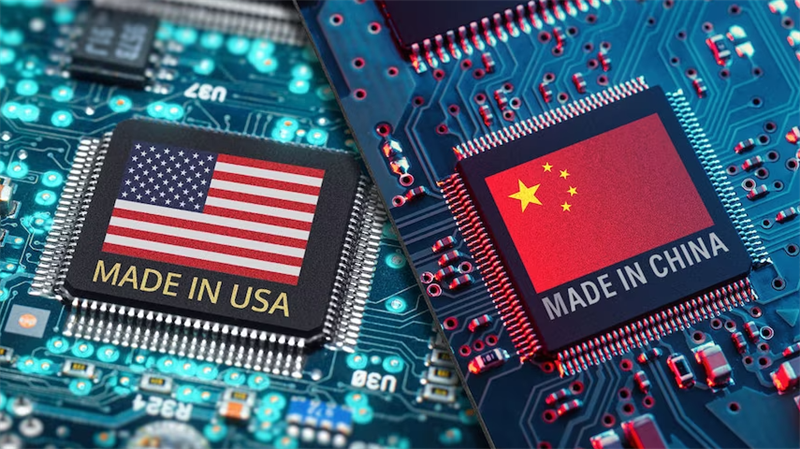The Biden administration is moving forward with a new round of export restrictions targeting China's semiconductor industry, which could impact as many as 200 Chinese chip companies. According to a report from the U.S. Chamber of Commerce, the U.S. Department of Commerce is expected to announce the new measures as early as this week, with an official announcement slated before the Thanksgiving break, which begins on November 28.
The new regulations are part of a broader effort by the U.S. to limit China's access to advanced semiconductor technologies, especially those critical to the development of artificial intelligence (AI) and military capabilities. One of the key components of the restrictions will be a ban on the export of high-bandwidth memory (HBM) chips, a critical component in AI systems. Additionally, it is expected that the new rules will include restrictions on the export of chip manufacturing tools, a move that could significantly impact China's domestic chip production capabilities.
These restrictions follow a series of measures already in place, including the prohibition of advanced chips made using U.S. technology from being exported to China. Since the U.S. introduced such controls in 2022, the country's semiconductor industry has struggled to maintain its edge as China pushes to achieve self-sufficiency in chip manufacturing. As part of this effort, Chinese firms like SMIC (Semiconductor Manufacturing International Corporation) have faced increasing difficulties in procuring cutting-edge equipment, particularly Extreme Ultraviolet (EUV) lithography machines necessary for producing chips smaller than 7nm.
In a statement on November 22, a spokesperson for China's Foreign Ministry criticized the U.S. for its continued use of "national security" as a pretext to impose unfair restrictions, asserting that these measures disrupt global supply chains and harm international trade. China has vowed to take "strong measures" to protect its companies' rights, reaffirming its commitment to advancing its own semiconductor capabilities despite the challenges.

The sanctions are also expected to have a wider impact on global players in the semiconductor industry, including companies like Nvidia, which have already faced restrictions on exporting high-performance GPUs to China. While these moves aim to curb China's technological advancements, they also have significant ripple effects on global supply chains and markets, underlining the ongoing tensions in the U.S.-China tech war.

As part of its broader strategy, the U.S. government has also been incentivizing domestic semiconductor production through the CHIPS Act, signed by President Biden in 2022, with the goal of bolstering U.S. manufacturing capacity and reducing reliance on foreign chip suppliers. These new export restrictions represent the next step in a long-term strategy to limit China's access to technologies that are considered vital for economic and military development.
The new regulations are set to have far-reaching effects on China's semiconductor industry, which continues to struggle to overcome technological barriers. As the U.S. tightens its grip on chip exports to China, the global semiconductor landscape is likely to continue evolving, with countries like China investing heavily in homegrown technologies to mitigate the impact of these sanctions. However, overcoming these challenges, particularly in advanced chip manufacturing, remains a monumental task.
+86 191 9627 2716
+86 181 7379 0595
8:30 a.m. to 5:30 p.m., Monday to Friday
